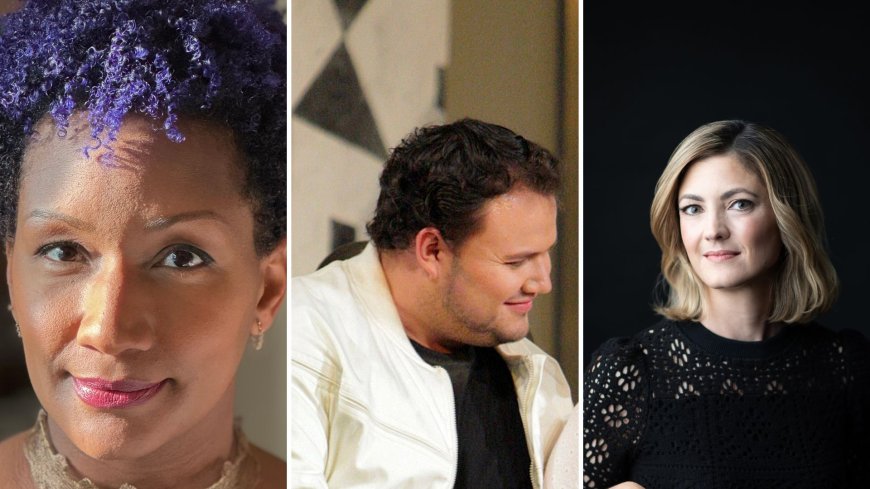
Behind every classical musician you’ll find years of dedicated practice, sometimes starting as young as age 3 or 4. In addition, a life in music requires talent, luck, skill, and money.
But only a small percentage of aspiring musicians succeed in becoming pros — there are far more good musicians than jobs in music. Many classical musicians leave the field and go on to successful careers elsewhere.
SFCV spoke with several professional musicians who are no longer performing but finding success elsewhere.
Health issues can lead to the end of a musician’s career. That’s what happened with Nicole Cash, formerly the associate principal horn of the San Francisco Symphony, and tenor David Lomelí.
Cash, the first Black woman to play horn in a major U.S. orchestra, joined the San Francisco Symphony in 2009 following eight years as third horn in the Dallas Symphony Orchestra. During her fourth season in SFS, Cash’s lower register started to feel slightly off. She was still playing well enough that apparently no one else noticed, but she knew something was wrong.
It took several years for her to seek a diagnosis, which confirmed that she had focal dystonia, a neurological movement disorder that causes involuntary muscle contractions. Cash’s colleagues in the SFS horn section were supportive and willing to adjust for her, but Cash decided to step away from being a professional horn player.
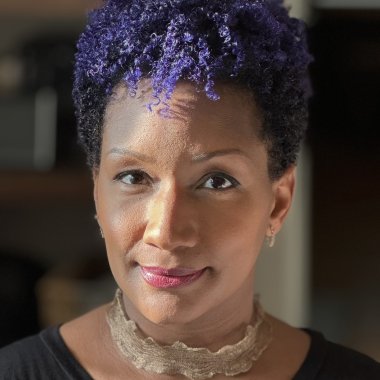
“I wasn't willing to put myself through another year of what I had just been through,” said Cash. “I was not happy at work because it was so hard and stressful.”
After a year of leave, Cash resigned from the orchestra. Her initial relief upon leaving SFS was followed by a deep depression. She and her husband relocated to Long Island, where they are currently raising their two children close to his family.
As her daughters became older and more independent, Cash started to think about her next career.
She considered interior design and baking, but concluded neither was right for her. After a stressful musical career, she wanted complete creative control and a better work-life balance.
At the suggestion of a friend, Cash looked into audiobook narration. Even though she wasn’t yet a fan of audiobooks, she signed up for a course in narration — she discovered an appreciation for the format and found a new calling.
“At that stage in my life, it made so much sense,” she said. “Now, all I do is shout from the mountaintop how amazing audiobooks are for busy people. It's something I can do from home. It's creative, it's performative. I always had a little bit of an actor bug in me: When I was a little kid, I asked my mom if she would get me an agent so I could be an actor.”
Cash narrates books in a wide range of genres, recording from her home studio. Her favorites are literary and historical fiction, but she also loves thrillers, mysteries, and “anything that has an axe to grind about social and political justice.” Romances, which she narrates under a pseudonym (we don’t know it, and if we did, we wouldn’t tell you), help her pay the bills and earn enough to qualify for health insurance through SAG-AFTRA, the actors’ union.
Cash neither listens to classical music nor thinks about her past life as a horn player much, but she said she feels lucky to have been a professional musician and appreciates the life she has now.
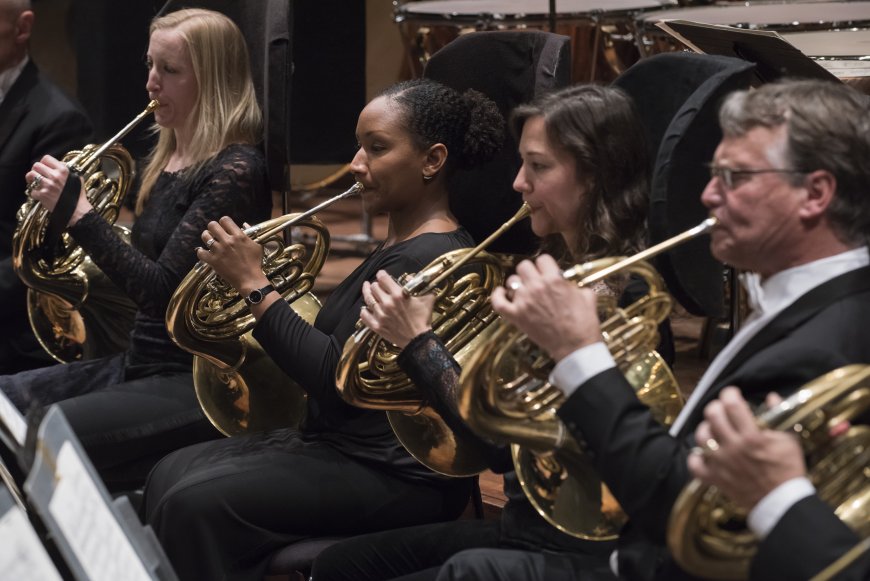
David Lomelí’s career trajectory was different: He became a consultant after retiring as a tenor 11 years ago. Now, his work influences multiple opera companies in North America and Europe.
Born and raised in Mexico, Lomelí started singing seriously in college — the scholarship he earned as a budding opera singer helped pay for his computer science degree.
Lomelí was a first prize and zarzuela winner in the 2006 Operalia contest. This led him to Los Angeles Opera’s Domingo-Thornton Young Artists program, then to San Francisco Opera’s Merola and Adler programs. His career took off from there, and by 2013 he had sung with important organizations in the United States and Europe.
Behind the scenes, Lomelí experienced gastrointestinal issues that made it increasingly difficult for him to sing. He experienced chronic pain and took medications to control reflux, which damaged his esophagus. He started to have difficulty singing in tune.
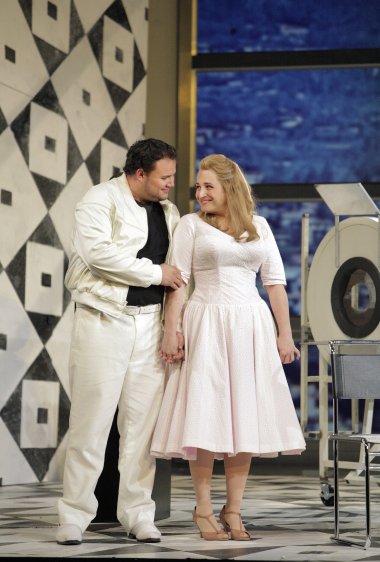
Lomelí underwent surgery to try to control the reflux, but he decided to retire from singing in 2014 after two years in and out of hospitals. He withdrew from planned engagements and lost a great deal of future income.
Nonetheless, he wanted to stay in the world of opera. He took an administrative position at The Dallas Opera and rose to artistic administrator in 2018. With the company, he contributed to commissioning several new operas, worked with the Hart Institute for Women Conductors, and developed the company’s presence on social media. In 2021, Lomeli became the chief artistic officer for Santa Fe Opera while remaining an artistic consultant at Dallas.
In 2024, he founded Lomelí Consulting, which offers a range of services: His company coaches individual singers, holds auditions, casts productions, helps companies develop their artistic goals and identity, and consults on identity and inclusion. The latter is of particular interest to Lomelí, who is the first Latino to hold a high administrative position at a top-tier opera company.
Elizabeth Rowe became principal flute of the Boston Symphony Orchestra (BSO) in 2004 at age 29, after winning an open audition that some 250 flutists applied for. She was a star during her 20-year tenure, playing as featured soloist in 28 concerts. Bay Area audiences were able to hear her in a gorgeous account of Elliott Carter’s Flute Concerto when the BSO visited Davies Symphony Hall during the San Francisco Symphony’s centennial season.
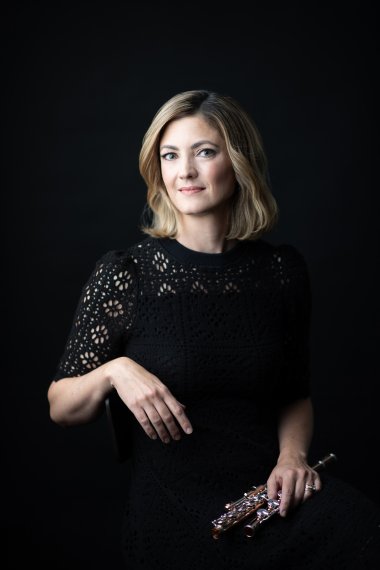
Rowe could have held that position for decades longer, but extra-musical issues eventually led to her decision to leave the orchestra. Her journey to a new career began when she discovered that she was being paid about $70,000 less per year than the orchestra’s principal oboe, John Ferrillo. (Unlike that of section players, principal chair salaries do not conform to a standard scale.)
After several years of trying to achieve pay parity through private discussions, Rowe filed a lawsuit against the BSO in 2018, seeking $200,000 back pay under the Massachusetts Equal Pay Act. She and the company reached a settlement early the following year, the details of which are confidential.
Rowe was not able to comment on her relationship with BSO management, but said her relationships with her BSO colleagues remained “strong and steady” throughout her career. Playing with Ferrillo –– who stated publicly that he felt her pay should equal his –– was “an absolute joy” for her.
She had never before considered leaving the orchestra or giving up the flute. She had been happy in her work and described her job as “a plum position” in and of itself and because of the BSO’s stature, superb concert hall, and exceptionally strong finances. But on a difficult day during the orchestra’s 2018 European tour, she thought to herself “you can do something else.”
During the pandemic, she realized leadership and executive coaching might be a new path for her.
Her experience as a principal player positioned her well to be a coach, as principal seats are leadership positions within an orchestra.
“Sound color, use of vibrato, where we breathe, and style of articulation are established by the artistic voice of the principal player, to a large extent,” Rowe said. She also noted that she made sure all members of the flute section thrived artistically and interpersonally. Rowe also realized that coaching her students about their careers was even more energizing for her than the technical and musical aspects of teaching the flute.
For several years, she played with BSO while simultaneously working as a coach. She loved both but realized that she couldn’t maintain a high level of excellence while balancing a second career. She had to make a choice.
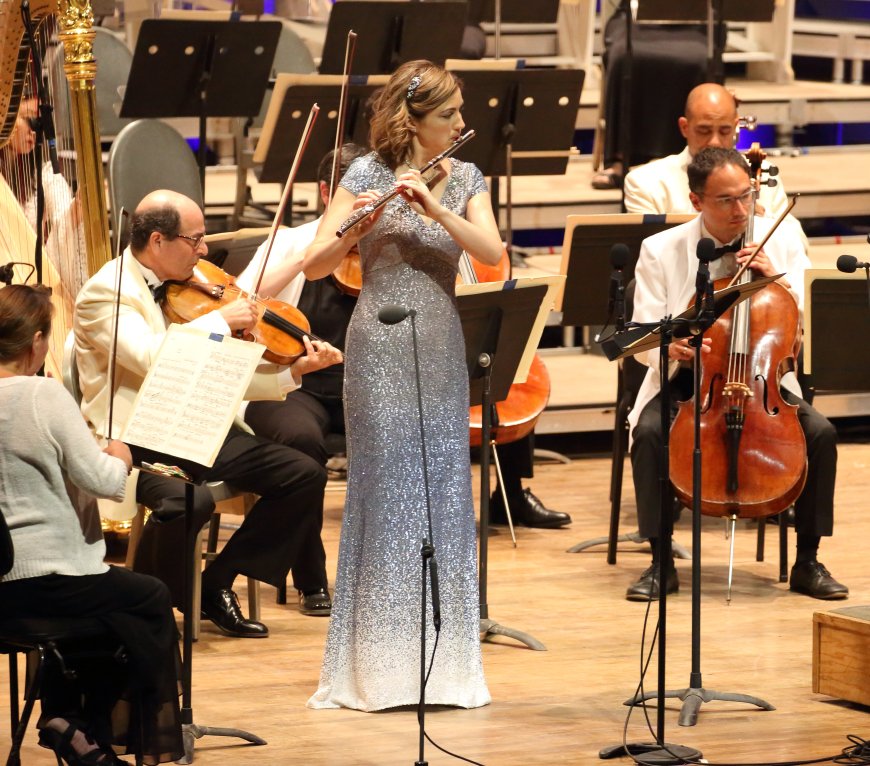
Rowe took a one-year sabbatical, during which she worked full-time as a coach and didn’t play the flute, to see how a career change might work for her. At the end of the year, she’d made her decision: she returned to the BSO for the 2023–2024 season, then left at the end of the season.
Today, she’s a full-time coach. Among her clients are executives, lawyers, and medical professionals.
“They’re people who are striving for excellence in their own domain,” she explained. “They have gotten as far as they can on their own and have recognized that they either want help doing better work, feeling differently about their work, or integrating their work and their personal lives differently. And that's when I come in.”




